There’s few things more fundamental to Bitcoin than a wallet address. Right from the start you’ll need one to receive your first bitcoin and it can be quite confusing to beginners trying to understand what all these random letters and numbers are, what they mean or why they keep changing. So let’s go through some of the most basic and important parts of what makes up Bitcoin.
Contents
What Is A Wallet Address?
A bitcoin address is a string of 26-35 alphanumeric characters that’s used to receive bitcoins.
eg: bc1qelem0ann687r2e9jax542lja7q8cu8s35h96pc
When sending any payment you always need to know where you’re sending it to. When using the Bitcoin network this “where” is represented by these automatically generated address.
How Bitcoin Wallet Addresses Work
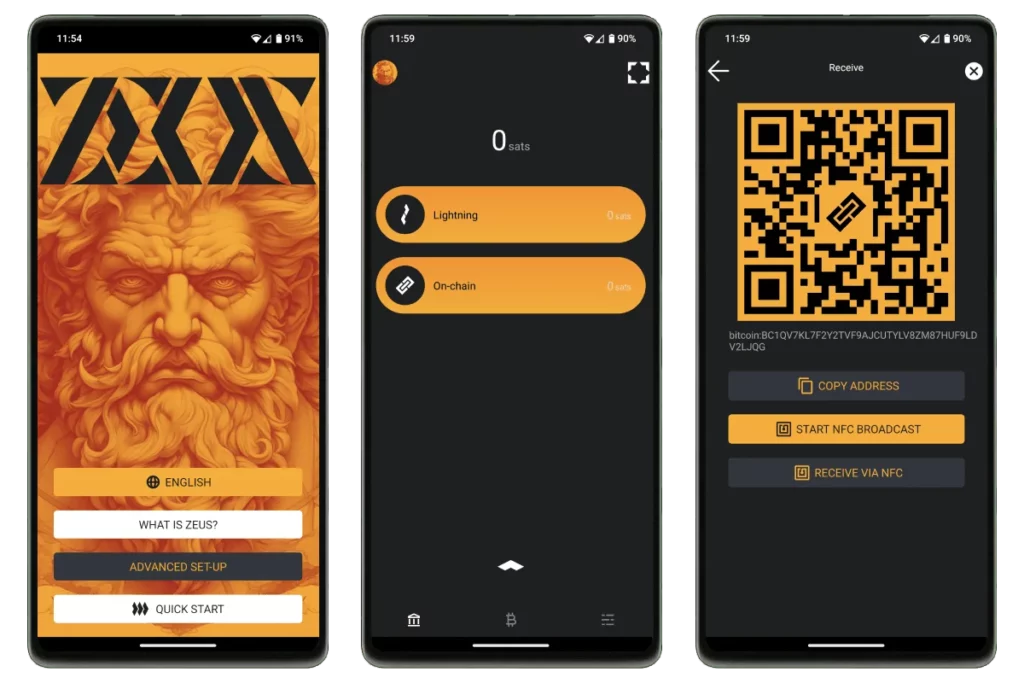
Your Bitcoin Wallet software is able to generate essentially infinite addresses for you at no cost and in simple terms this is how the process works:
- Wallets manage and store your Private Keys
- The wallet software uses your Private Keys to generate your Public Keys
- The wallet software uses your Public Keys to generate your Bitcoin Addresses
One more critical detail about wallet addresses is that they should only ever be used once.
Don’t reuse addresses ever!
While it’s technically possible to use an address for multiple payments, this works by accident and harms your Bitcoin Privacy as well as other unrelated third parties, so it is considered a very bad practice.
Virtually all “good” wallet software does this for you automatically these days, so it’s not something you actively need to manage, but it’s good to keep in mind.
>> Learn More: Why Does Your Bitcoin Address Change?
Bitcoin Wallet Address Examples
As shown above, a bitcoin addresses simply looks like a string of 26-35 alphanumeric characters. Over the years as Bitcoin developed, there have been a number of different formats for addresses. Below are all the different wallet addresses you’ll come across:
- Pay To Pubkey (P2PK) – Legacy: This address format is simply your Public Key
- Pay To Pubkey Hash (P2PKH) – Legacy: 18c2Ykj4CAfoNBLq65e15hot6Wo6CShMgb
- Pay To Script Hash (P2SH): 3orM1pUeZsadrZoQp45PBEH8VQaofnnNSN
- Pay To Witness Script Hash (P2WSH): 3orM1pUeZsadrZoQp45PBEH8VQaofnnNSN
- Pay To Witness Public Key Hash (P2WPKH) – Native SegWit v0: bc1qh2e9jax542lja79elem0anu8s356pn687rq8cc
- Pay To Taproot (P2TR) – Native SegWit v1: bc1pmzfrwwmk5yndsvgfg4esc06e8c0tqh69yjr5lf
By far the most common bitcoin address is the Native SegWit v0. These start with bc1q and have an excellent combination of being well supported, but also giving you great savings when it comes to Transaction Fees.
How To Get A Bitcoin Address
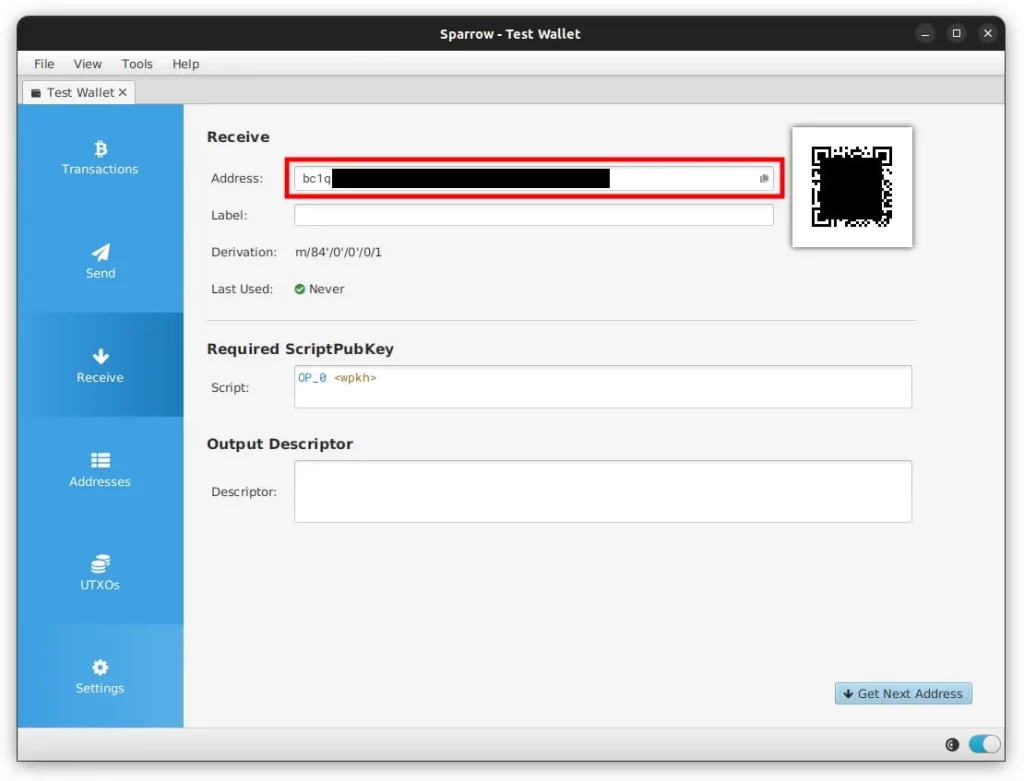
The management of your bitcoins as well as address generation is done in wallet software. There are Bitcoin Wallets for all platforms and computer types:
- Mobile Wallets: Zeus, Electrum, BlueWallet, Blockchain
- Desktop Wallets: Sparrow, Electrum, Specter
- Hardware Wallets: Blockstream Jade, BitBox02, COLDCARD Mk4
- Web Wallets: Blockchain, BitGo (web wallets aren’t recommended)
Once you download and install your wallet, click on the Receive Bitcoin button or tab and it should automatically generate one or multiple addresses for you. This new bitcoin address is ready to receive any bitcoin you send to it, but make sure you only send bitcoin and not any other cryptocurrencies as it will likely result in you losing those funds.
Wallets Don’t Store Bitcoins
Another very important thing you need to know about Bitcoin Wallets is that they do not store any bitcoins!
The name “wallet” is used because the creators are trying to make it easily relatable to everyday people, but in actual fact Bitcoin Wallet software isn’t like a normal “wallet” that might store physical cash or coins.
Instead, Bitcoin Wallets only ever store your private keys. These are cryptographic keys that prove to everyone else that you – and you alone – own and have the authority to spend certain bitcoins on the Bitcoin network. Every bitcoin is and always has been only located on the Bitcoin network.
- Bitcoin Wallet: Stores your private keys
- Bitcoin Network: Stores your bitcoins
This might seem like a simple distinction, but it’s a critical one that is very important when Understanding Bitcoin and you should embed it right from the start as otherwise it leads to lots of confusion.
What Is A UTXO?
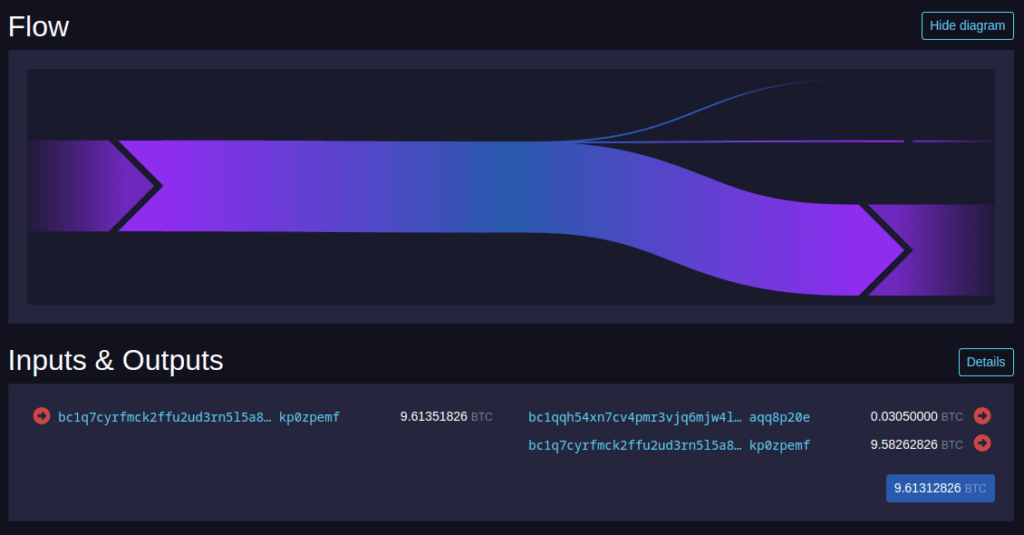
The next important thing to understand when dealing with wallet addresses is what’s referred to as the UTXO Model. In Bitcoin UTXO stands for Unspent Transaction Output. Each UTXO is a discrete, single output or spend that comes from a Bitcoin transaction.
UTXOs are uniquely identifiable and indivisible, so you cannot spend part of a UTXO, you must spend all of it. They are also destroyed completely when they are spent. All Full Bitcoin Nodes on the network keep track of all spendable UTXOs. When you add up all of the current UTXOs you get the total supply of all bitcoins on the network.
Once a UTXO is consumed in a transaction, it no longer exists in this set of spendable UTXOs. If you tried to send funds to an address of a spent UTXO, the transaction would be invalid and rejected by the network. This is because it’s an attempted double spend and the network won’t accept it
UTXO Model Vs Account Model
Regular fiat bank accounts as well as other cryptocurrency networks such as Ethereum or Ripple use what’s called the Account Model. This means you have a single account, usually with an account number, and that account is what’s used to send your funds to. It doesn’t change over time and is what most people are used to.
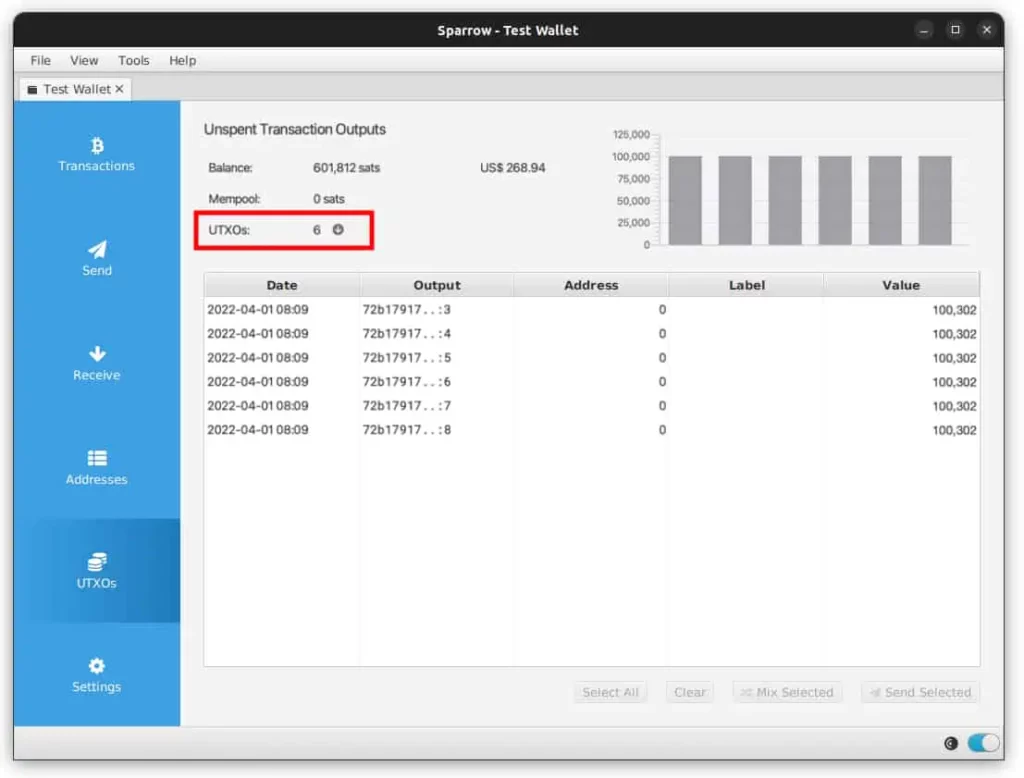
Bitcoin uses a different accounting model called the UTXO Model. In the UTXO model there are no “accounts”. When you open your wallet software it finds all the UTXOs that your bitcoin wallet private keys has control over and displays them. All these UTXOs get added together and the result equals your total balance.
Why Are Bitcoin Wallet Addresses Setup This Way?
While the Account Model will likely be a lot more familiar to most people, the UTXO Model allows for greater privacy, transparency and auditability.
For example, no one can do a full audit of all the bank accounts in the US where as auditing the Bitcoin network is done every 10 minutes by every Full Bitcoin Node. The UTXO model also allows for much more privacy as it’s free and easy to generate virtually unlimited Bitcoin Addresses.
Each of these addresses can store any number of bitcoins and by default, there’s no connection between each address as viewed by an outside party. Compared to the legacy financial system and the Accounts Model, users are usually forced to keep all their funds in a single account that’s tied to their identity.
The Importance Of Self Custody
Not your keys, not your coins.
Having a self-custodial Bitcoin Wallet (also called a non-custodial or private wallet) and holding your own Private Keys is the one of the most important things to do when it comes to good Bitcoin security. This is because whoever holds your private keys has full control over your funds. They can steal and spy on them at all times.
Many who have trusted third parties with their keys such as centralized crypto exchanges that have online wallets have lost all their bitcoin. People have even lost their fiat money (USD, Euro etc) by using Fiat Wallets with these exchanges too. Examples include: MtGox, Cryptsy or the most recent FTX and this happens so often we even have a dedicated Crypto Exchange Bankruptcies page!
If you have funds on a centralized exchange. Get. Them. Off. Now. You’ve been warned!
Taking custody of your own possessions isn’t new or complicated and taking custody of your bitcoins isn’t either, it just takes a little bit of common sense and precaution.
>> Learn More: Custodial Vs Non Custodial Wallets
What If You Use The Wrong Wallet Address?
Sending bitcoin to the wrong wallet address is a very real and serious issue. Have you entered in the receivers address correctly? Have you double checked it? What if you’ve missed typed a letter or confused a lower case “L” for a “1”?
Even if you get the address you’re sending the funds to right, what if the other person has made a mistake when they sent you the address? What if their computer has been compromised and the address they think is theirs, was actually swapped out by an attacker and you’re sending the funds to the attackers address?
There’s malware (known as clipboard hijackers) that will detect a bitcoin address has been copied to the clipboard and change it to one the attacker controls. There’s also the possibility that the address is altered by a Man In The Middle (MITM) attack or that your computer is compromised as well.
Well for starters, there is some built in error corrections with Bech32 Addresses (the ones starting with “bc1”). This means that if you just accidentally type your btc wallet address in wrong, your software wallet will likely alert you to this and ask you check and correct it.
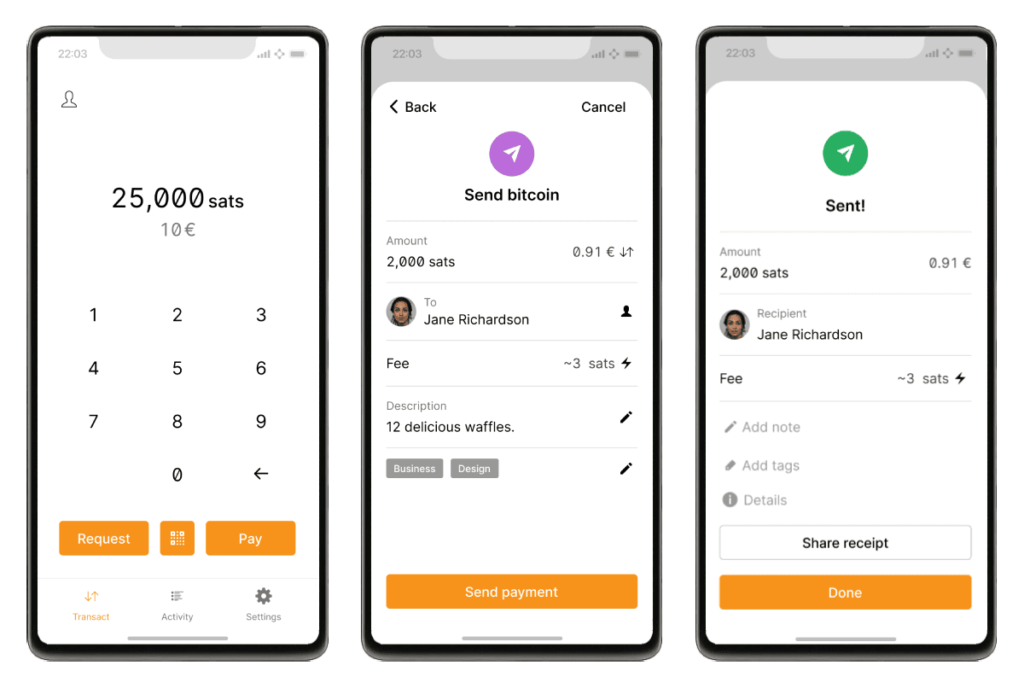
This is the same if you type in something completely wrong like a Ethereum wallet address and try and send bitcoin to it. In most cases the wallet software will just error out and there’s no harm done. However, it’s still possible for an address to be valid, but still go to the wrong wallet as described above with a compromised device.
If this happens, and you don’t pick it up, then unfortunately there’s nothing that can be done to reverse the transaction after it’s been confirmed in a block. As such, it’s always extremely important that you check and double check the receiving address before you click send or broadcast.
We recommend checking each and every character both forwards and then backwards. If you can’t be bothered doing this, at least check the first and last 5 characters, then also a random 5 characters in the middle to protect against address poisoning attacks.
>> Deeper Dive: Payment Protection: Send Large Bitcoin Payments Safely
Managing Your Bitcoin
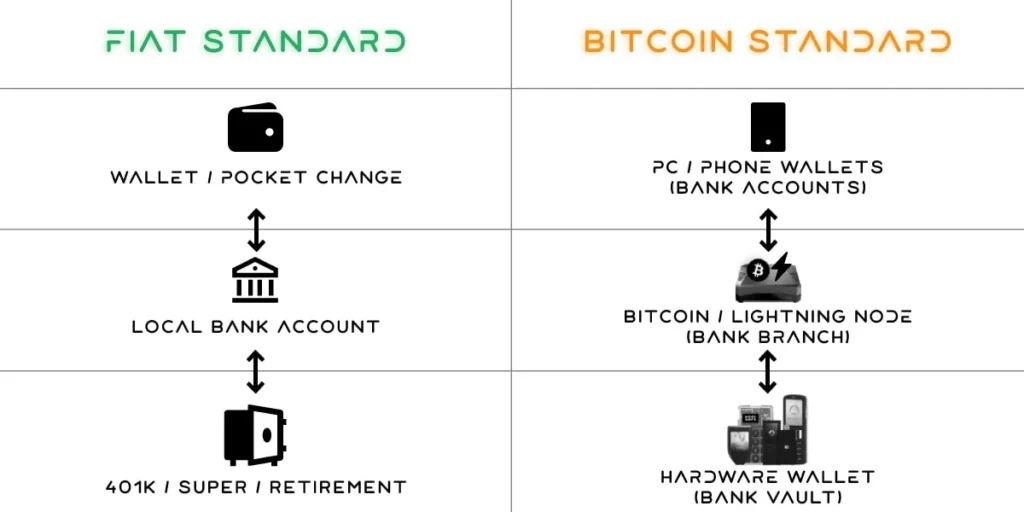
While there are many ways to organize your bitcoin, we recommend users segregate their funds into different secure locations. These different locations allow you to have different security requirements for different levels of funds. It also allows you be able to withdraw and use your funds easily, whilst ensuring the bulk of your funds remain safe.
Bank Vault / Cold Storage / Hardware Wallet
This contains most of your money. It’s also the most secure area where no one but you has access to it. There’s no connectivity to the internet or outside world and there’s no third parties involved. You alone hold the keys and no one can stop you from accessing your funds
Bank Branch / Bitcoin & Lightning Node
This contains a small to medium amount of money. It’s connected to the internet and although it has good security, you’re aware that at any time, it may get attacked by robbers and all of the money stored in it could be stolen. As such, you only keep in it what’s necessary for the day to day operations of the bank. If it gets low, you top it up from time to time from the Bank Vault funds. Similarly if it gets too full, you move some of the money into the Bank Vault for safe keeping
>> Deeper Dive: How To Manage Your Bitcoin
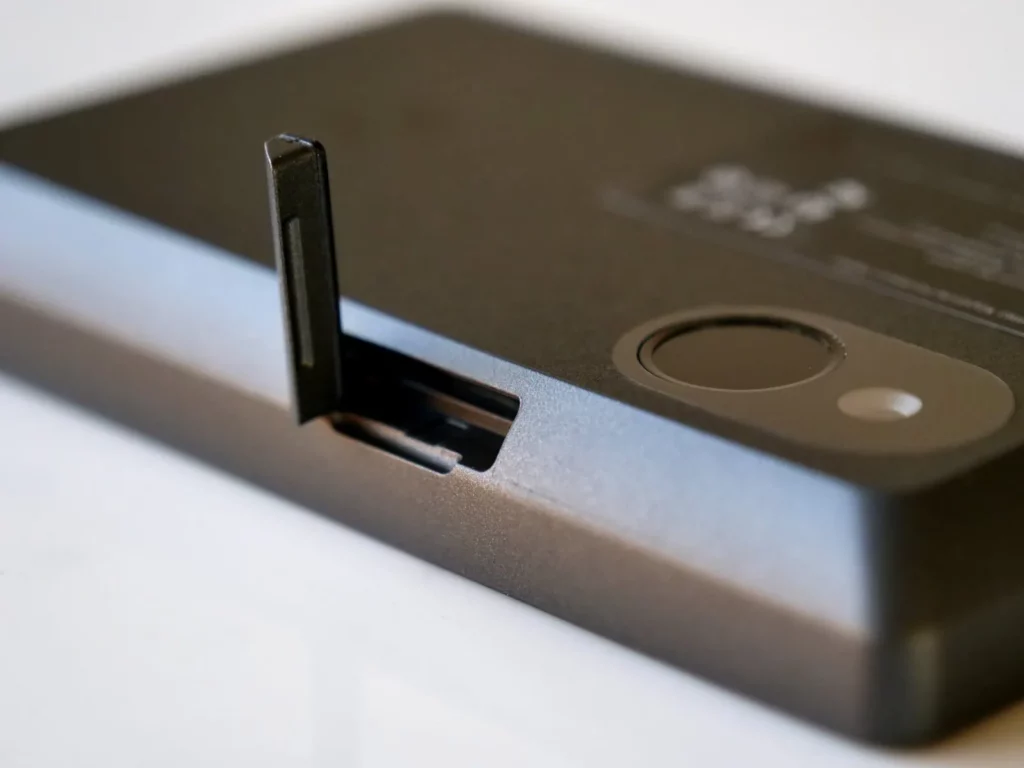
When we say Bank Vault / Hardware Wallet, this could mean a single signature hardware wallet or maybe it’s a Multisig Wallet, either way the private key(s) that control the Bitcoin funds are kept offline and locked down in a specialized hardware device. Funds almost exclusively flow into the hardware wallet and remain there for years at a time. Safe. Secure.
Looking at the Bank Branch / Node, whether it’s a home made Raspberry Pi running something like Umbrel, a purpose built Start9 Server Pure or many other varieties, it is operated and fully controlled by you and is what all your wallets connect back to.
Bitcoin based wallets connect back to Electrs and use the full node to verify and broadcast all transactions. Lightning Wallets connect back to the Lightning Node and use the Lightning Channels the node has to send and receive lightning payments with other users.
While this setup might be a bit advanced for beginners, it helps to know how to manage things long term right from the start. For now though, you likely know more about bitcoin addresses than 99.99% of all people. Use it wisely!
FAQ
How Do I Find My Wallet Address?
Where your address is located depends on what software wallet you’re using. However the vast majority of wallets usually display your wallet address front and center when you select the “Receive Bitcoin” option.
What Is An Example Of A Wallet Address?
The most common Bitcoin addresses you’ll see are P2WPKH or Native SegWit V0 address formats that start with “bc1q”. An example might be something like: “bc1qh2e9jax542lja79elem0anu8s356pn687rq8cc”.
Can I Trace A Wallet Address?
Yes. Every Bitcoin transaction is permanently stored on the Bitcoin Blockchain which is an open, distributed ledger viewable to anyone. Anyone can look at any transaction and see both it, as well as the transactions before and after it. What cannot be known is who the to/from addresses represent unless you have other 3rd party information to pair it up with.
How Can I Generate My Wallet Address?
The management of your bitcoins as well as address generation is done in wallet software. There are Bitcoin Wallets for all platforms and computer types such as desktop, mobile or hardware wallets. Simply open up your wallet and your address should automatically be generated for you.
Is It Safe To Give Out A Wallet Address?
Yes. A wallet address tells the other party where to send cryptocurrency to, as such it’s required to share your wallet address in order to get paid. Do try and keep it relatively private though, especially in regards to linking it to your real world identity.



